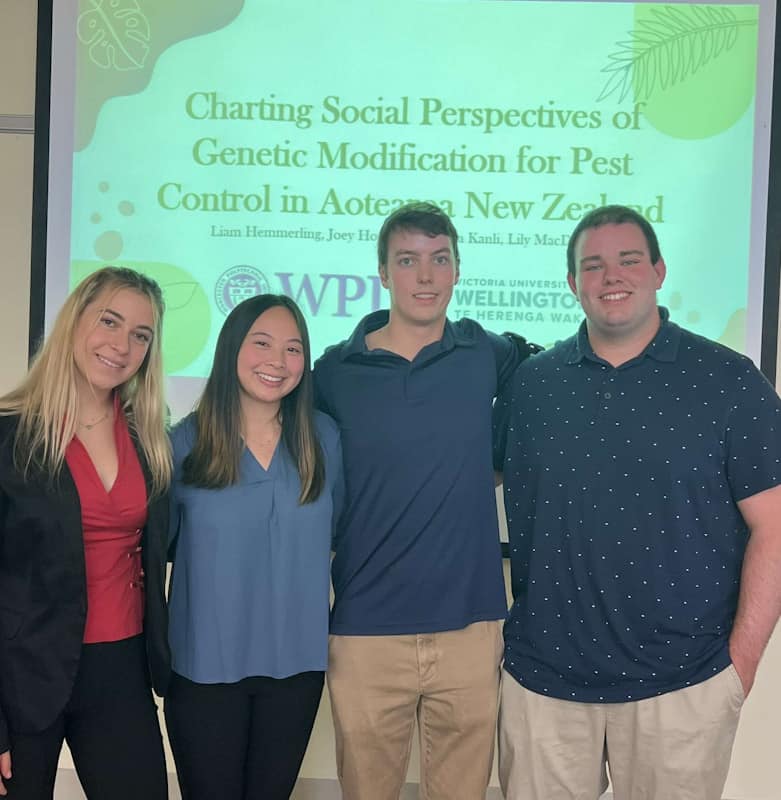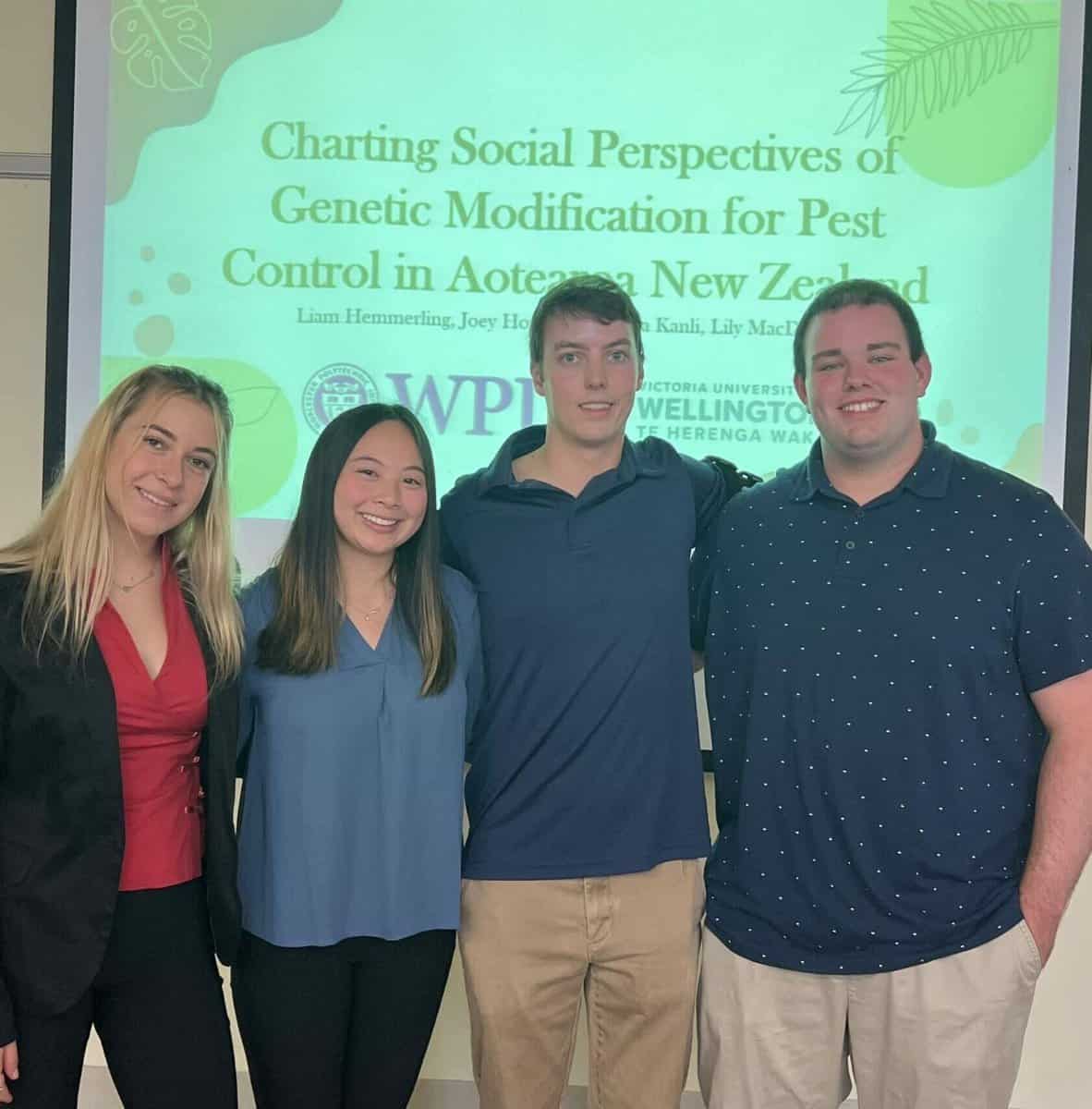
Seven weeks doesn’t seem like much time, but WPI students are used to working in seven-week time increments. This is because WPI uses a quarter-based system, rather than a semester system. WPI also has their students engage in a social impact project as a requirement for their degrees – students can choose from fifty possible project locations around the world. For Rafaela, Lily, Liam and Joey, the project sponsored by Ocean was their top choice.
“The quarter prior to leaving, we had a prep class about New Zealand culture and Māori language,” says Liam, a Mechanical Engineering major. “We also did a lot of the background research and got the initial bearings on the project.”
The goal of the project was to understand social perspectives of gene-based pest control (like gene drive and single-sex offspring selection) in Aotearoa. They gathered data using Q-method and were mentored by Alan King-Hunt (Ngāti Hauā, Ngāti Te Oro) who used Q-method in his Master’s thesis. This method involved generating statements about gene-based pest control and asking participants to organize these statements on a sliding scale of strongly disagree to neutral to strongly agree.
Here’s the catch – participants were challenged to place the statements in a prescribed pyramid shape.
“There were 34 statements,” says Rafaela, who is studying biochemistry. “But participants could only put two statements in the strongly agree column and two statements in strongly disagree column. The rest of the statements had to fall somewhere in between those two extremes.”
The team then used factor analysis software to group their 18 participants according to the statements selected for these two extremes.
“The software created three groups of similar answers,” says Joey, who is studying Environmental Engineer and Fire Protection Engineering. “We used the interviews with the participants and the statements themselves to assign meaning to those groups.”
Eight participants fell into the “In support of gene-based pest control technologies” category; five were in the “In support of gene-based pest control technologies with an emphasis on Treaty Partners / Mātauranga Māori”; and three were in the “Wary of gene-based pest control technologies due to a lack of knowledge on the topic.” The remaining two participants didn’t fit within the factor analysis categories.
The team presented their findings in February at Victoria University of Wellington. Their presentation concluded with recommendations.
“One of our recommendations is improved communication,” says Lily, a Biochemistry major. “We found that people did not know a lot about genetic modification in general or how it applies to pest control.”
Their presentation was well received, particularly by their sponsor Ocean.
“They’ve done an amazing amount of work in the seven weeks that they’ve been here,” she says. “They dived into a complex social and technical challenge, bringing this very complex methodology along with them. The results are interesting and insightful and will inform projects that we’ll be working on going forward.”
Even though their seven-week project was intensive, the team still got to enjoy New Zealand. Their adventures included ziplining in Rotorua, exploring Wellington, and visiting Queenstown, Milford Sound and Hobbiton. They all hope to come back to New Zealand someday and Ocean hopes so too.
“I certainly hope this is not the end of this journey and this relationship,” says Ocean.
Jenny Leonard
March 2023
